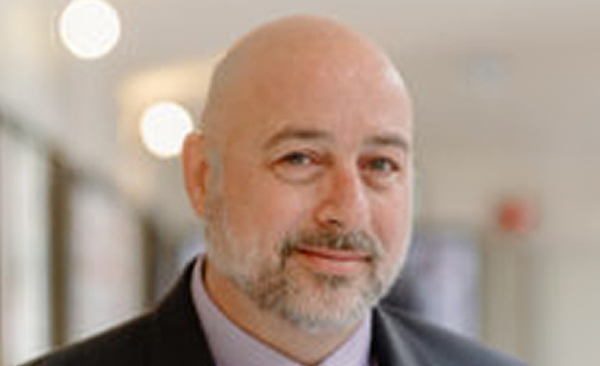Performance, Sport and Exercise Psychology concentration
Optimizing human performance through psychology and evidence-based practice.
In the Performance, Sport and Exercise Psychology concentration, you will explore the foundations of the field, key theories, and practical applications, including performance consulting and working with diverse populations. Our aim is to equip students with the knowledge, skills, and abilities needed to make a meaningful, positive impact on individuals, teams, and communities.
Call to action
Concentration details
Program Structure and Pathways
Most students in the Performance, Sport, and Exercise Psychology concentration complete the coursework-only option, preparing to become a Certified Mental Performance Consultant® (CMPC) through the Association for Applied Sport Psychology (AASP).
Learn more about CMPC certification
If you’re interested in completing a project or thesis, connect with a faculty member who is willing to serve as your advisor. This option can still be completed in two years with careful planning.
Program goals and objectives of our program are available upon request.
CMPC Requirements
- Minimum of 24 credits at the 400- or 500-level, taken in sequence.
- 400 hours of mentored applied experience under an AASP-approved mentor.
- Advisors help design a plan of study to ensure all requirements are met.
Explore the AASP standard application pathway
Career Preparation
Graduates are prepared to work across more than a dozen fields, applying the skills developed in our program.
Skill development
In addition to expected knowledge gains, the PSEP program aims to develop various skills to increase the employability of graduates. These skills include:
Relationship & Communication: Build effective one-on-one and group communication, adapt messages to audiences, and engage across cultures
Mindset: Cultivate adaptability, curiosity, and openness to learning
Technical: Apply assessment, program design, and evaluation tools in performance settings
Consulting: Engage clients, set goals, and facilitate growth and change
Business: Develop essential skills in administration, networking, and professional practice
Year 1
Explore the each semester schedule — including courses, activities, and opportunities — by clicking through the tabs below.
Fall semester
| Course # | Course Title | Credit Hours | AASP Knowledge Domain |
|---|---|---|---|
| KN 531 | Applied Sport Psychology | 3 hours (core class) | K2 |
| KN 533 | Consulting Theories & Skills | 3 hours (core class) | K5 |
| KN 534 | Professional Ethics in Performance, Sport, and Exercise Psychology | 3 hours (core class) | K1 |
Spring semester
| Course # | Course Title | Credit Hours | AASP Knowledge Domain |
|---|---|---|---|
| KN 447 | Athlete Mental Health. | 3 hours (core class) | K4 |
| KN 432 | Positive Psychology | 3 hours (core class) | K7 |
| KN 433 | Sociological Perspectives in Performance, Sport & Exercise Psychology | 3 hours (core class) | K3 |
Year 2
Explore the each semester schedule — including courses, activities, and opportunities — by clicking through the tabs below.
Fall semester
| Course # | Course Title | Credit Hours | AASP Knowledge Domain |
|---|---|---|---|
| KN 500 | Evidence-Based Practice in Kinesiology and Nutrition | 3 hours (core class) | K6 |
| KN 532 | Cultural Humility in Performance, Sport & Exercise Psychology. | 3 hours (recommended class) | K8 |
| KN 537 | Psychology of Sport Injury | 3 hours (core class) | K2 |
Spring semester
| Course # | Course Title | Credit Hours | AASP Knowledge Domain |
|---|---|---|---|
| KN 536 | Non-Sports Performance Psychology. | 3 hours (recommended class) | K2 |
| KN 593 | Internship in Kinesiology. | 3 hours (core class) | - |
| KN 434 | Business Branding in Performance, Sport and Exercise Psychology | 3 hours (recommended class) | - |
Course descriptons
Access course descriptions here.
Students can register for courses beyond their requirements. If they do additional tuition costs and fees may be assessed. Check the Graduate College website for additional information. Graduates can take courses in motor control KN372 and exercise physiology KN352 to supplement CMPC knowledge domain requirements. In addition, students can study nutrition courses as well.
Learn from the best
Accredidation
The master’s program in Kinesiology, concentrated in Performance, Sport, and Exercise Psychology, is an applicant for accreditation with GPAC. Achieving applicant status does not guarantee that GPAC will grant initial accreditation. If granted initial accreditation, the effective date will be the date of the site visit upon which the successful accreditation decision was based.
Questions?

Questions?
Still wondering what a concentration in performance, sport and exercise psychology can do for you? We’re here to answer your questions.
You can contact John Coumbe-Lilley at:
Email jcoumb1@uic.edu
Phone 312-996-0152
Address 901 W. Roosevelt Rd.
334 PEB, MC 194
Chicago, IL 60608